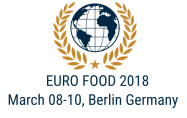
Thomas A Aloysius
University of Bergen, Norway
Title: Chicken protein hydrolysates targeting mitochondria exert anti-atherosclerotic effect beyond plasma cholesterol-lowering activity in apoE-/- mice
Biography
Biography: Thomas A Aloysius
Abstract
Utilization of by-products from chicken: Protein hydrolysates of both marine and agricultural origin have many health benefits, including lipid lowering and anti-inflammatory effects. This study aimed to penetrate the effect of protein hydrolysates from chicken (CPHs) on obesity related disease and atherosclerosis. Firstly, a mouse obesity model was used to investigate the effect of four different CPH (CPH1-4) generated using specific hydrolyzation methods. C57BL/6 mice were fed a high-fat control diet (25% w/w casein) or CPHs diets (12.5% w/w CPH and 12.5% w/w casein) for 12 weeks, and plasma lipids, hepatic mitochondrial fatty acid oxidation and plasma cytokine levels was analysed. Diets containing CPH1-4 significantly reduced plasma levels of IL-1β, IL-16, INF-γ, TNFα, and MCP-1. In addition, diets containing CPH3 and 4 increased the hepatic mitochondrial fatty acid oxidation indicating a positive effect on fat burning. Diets with 12.5% w/w CPH3 and 4 were further studied in atherosclerosis-prone apoE-/- mice. After 12 weeks of high-fat feeding, CPH4 significantly reduced the atherosclerotic plaque area in the aortic arch compared to control (P<0.02), while CPH3 revealed reduced atherosclerosis at borderline significance ( P<0.09).The plasma level of cholesterol and triacylglycerol remained constant in the two experimental groups, but changed plasma fatty acid composition was observed resulting in an increased plasma level of C20:4n-3 and C20:5n-3 accompanied with increased delta-5 desaturase index and reduced plasma atherogenicity index (AI). Noteworthy,the AI correlated to the plague area. Moreover, the protein hydrolysate from CPH4 tended to decrease plasma levels of inflammatory mediators and a significantly reduced level of MCP-1 was found compared to control. Overall, these data show that protein hydrolysates from chicken, able to increase the mitochondrial fatty acid oxidation, can reduce atherosclerosis and attenuate systemic risk factors related to atherosclerotic disorders, but not directly related to changes in the level of plasma cholesterol.

